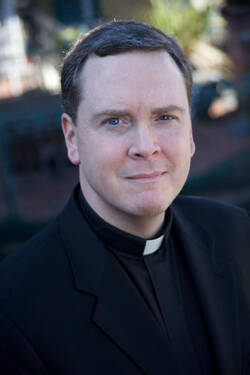When we hear “The harvest is abundant but the laborers are few,” our minds turn at once to priestly or missionary vocations. But there’s more to it than that: The Gospel of Luke isn’t just describing a labor shortage. It is important to keep in mind that the only reason there is a labor shortage is that there is an abundance in the first place. Before we get to any practical questions, then, we might profit from some reflection on what a marvelous thing it is that the vineyard exists at all, for this reminds us of the primordial fact of human existence, an essential truth embedded in each of our hearts: All is a gift. All that is and was and will ever be began with God and will return to God in the fullness of time. The harvest, in other words, is a gift. It is, in fact, the gift itself.
To be a Christian disciple is to live one’s life in this truth, the truth of gratitude, the truth that God-in-Christ is the origin and destination of everything. The very opposite of this truth is grandiosity, the lie that I am, or we are, the origin and destination of everything. In gratitude, we see our lives as gifts, freely given; in grandiosity, we see them as earned possessions. This sense of entitlement more often than not leads to greed and calculating self-interest.
So much of our world is built on principles of mutual self-interest and rational choice, the laws of supply and demand. These things are not necessarily bad in themselves, but it is sometimes not easy to see, watching events on Capitol Hill or on Wall Street or in The City or in Hong Kong, that the world and its resources are, in fact, gifts from God, gifts of which we are merely stewards for one another and for future generations.
In October 2011, the Pontifical Council for Justice and Peace said the global financial crisis “has exposed behaviors such as selfishness, collective greed and the hoarding of goods on a mammoth scale.” In the preface, Cardinal Peter Turkson said everyone is called “to examine in depth the principles and the cultural and moral values that underlie social coexistence.” As this week’s editorial points out, we would do well at this moment to recall this truth.
In other words, we need to remember who we are: gifts of God who are called to give in return. No one is saying that being a banker or a business executive is necessarily a bad thing. Only that being a selfish banker or business executive is a bad thing, just as being a selfish schoolteacher is a bad thing. We should remember that, in case any one of us is tempted to scapegoat others for our troubles, whether they’re conservative bankers or liberal protesters. Let us recall that in all likelihood, every one of us has been a part of the problem at some point in our lives. I know I have. And I have learned the hard way that throwing stones is inadvisable for those who live in heavily mortgaged glass houses.
All that God asks of us may sound terribly lofty, even naïve. It does to my ear at times. What is more naïve, though, is any notion that we can be rescued from the world’s colossal troubles by something other than the truth, however difficult it may be to hear, however seemingly impossible it may be to live out.
God knows it isn’t easy. So God gives us the gifts we need to give to one another in return—the grace of creation, the transformative power of love, the redemptive power of mercy. And as if all that weren’t enough, God sent us something else: his only son, whose grace not only makes possible our generosity, but whose earthly vocation provides us with the real world example of how to do it.








